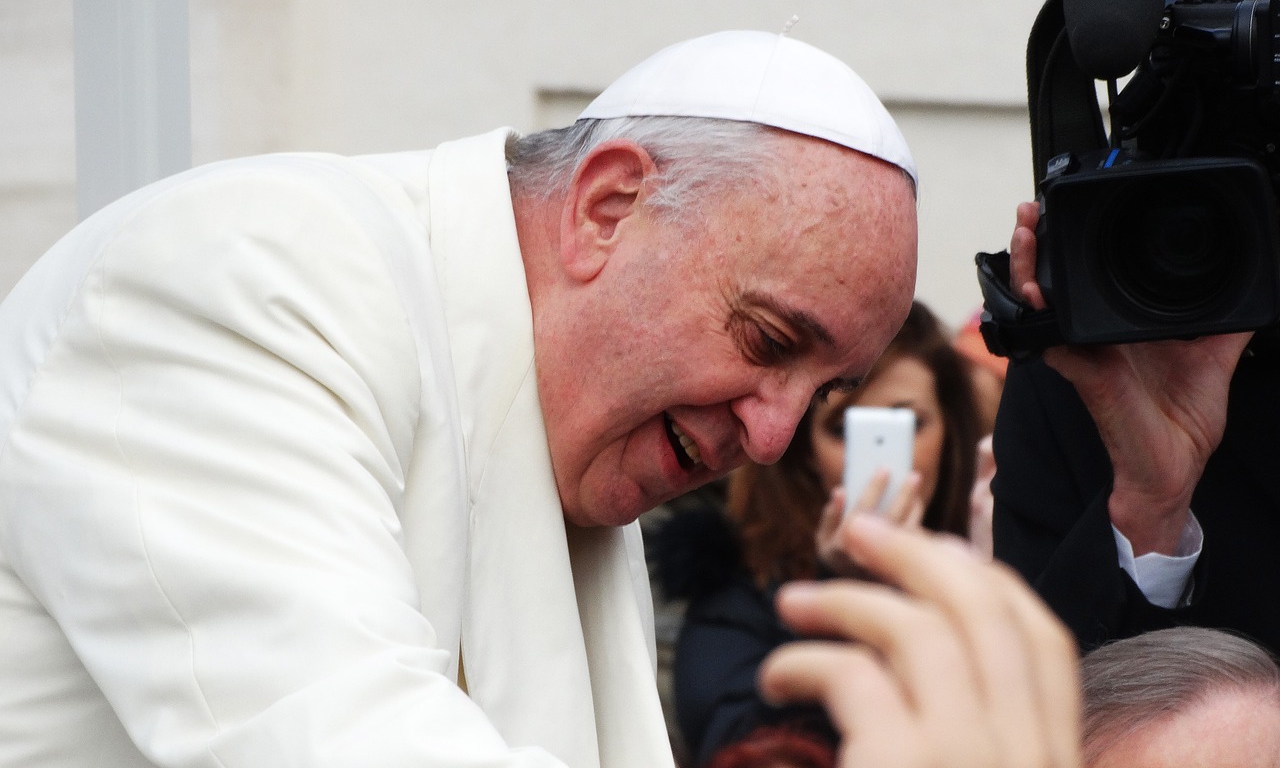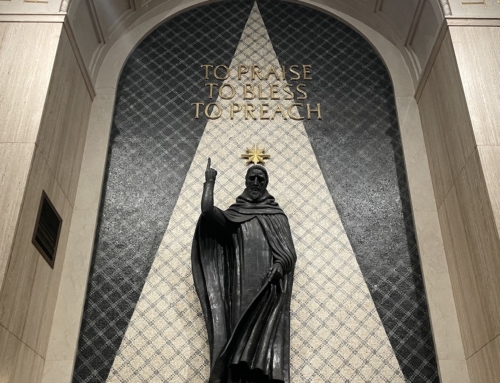We Catholics take a lot for granted. Consider, for instance, the fact that our Church was founded by God.
It’s scandalous. It’s downright impolite. To some, it’s even comically absurd. But then the same could be said of the Incarnation itself, of the election of the Jewish people, of the fact that God takes any interest in the human race at all. We’d rather not admit it, but what can we do? There it is—the wonderfully strange fact that God loves us.
Notice, however, that the man Jesus Christ, who is God, did not establish something vague or abstract. He didn’t leave behind a system of ideas or a legal code, important though these were, and would be. Nor, on the other hand, did he simply leave each man to his own devices, to follow his own judgment and interpret things in his own way.
Instead, he did something very specific, very concrete, and (truth to tell) very inconvenient. He gave us the Church, his Body. He sent the Holy Spirit upon a definite number of men and women; he quickened them with his own divine life; and he commissioned them to share this life with others through Baptism and the preaching of the Good News. Moreover, to the Apostles—and preeminently to poor Peter—he gave the task of ruling the Church in his stead. In fact, he made this the test of Peter’s love for him: “Do you love me? . . . Feed my sheep” (Jn 21:17).
It is all very unambiguous: “I will give you the keys of the kingdom of heaven; whatever you bind . . . shall be bound, and whatever you loose . . . shall be loosed” (Mt 16:19). “Simon, Simon, behold, Satan demanded to have you, that he might sift you like wheat, but I have prayed for you that your faith may not fail; and when you have turned again, strengthen your brethren” (Lk 22:32). “You are Peter, and upon this rock I will build my Church, and the gates of hell shall not prevail against it” (Mt 16:18). “Go therefore and make disciples of all nations
. . . teaching them to observe all that I have commanded you; lo, I am with you always, even to the end of the world” (Mt 28:19–20).
The scriptural testimony is well known. Less familiar, perhaps, is the abundant historical evidence. Take, for example, the following passage from a letter by St. Clement, the fourth Bishop of Rome, written to the church in Corinth, probably in the 90s A.D.:
Having received their orders, and being fully assured by the resurrection of our Lord Jesus Christ . . . [the Apostles] went forth . . . And thus preaching through countries and cities, they appointed . . . the bishops and deacons of those who should afterwards believe . . . Nor was this any new thing . . . Our Apostles knew, through our Lord Jesus Christ, that there would be strife on account of the office of the episcopate. For this reason . . . they appointed those [bishops] already mentioned, and afterwards gave instructions, that when these should fall asleep, other approved men should succeed them in their ministry.
This was written by a man who, as St. Irenaeus († 200 A.D.) tells us, “saw the blessed Apostles and conversed with them, and still had their preaching echoing in his ears” (Against the Heresies, III, 3).
Again, for conveying a sense of what the hierarchy meant in the early Church, none is better than St. Ignatius of Antioch. The electrifying letters he wrote on his way to martyrdom (ca. 98–117) are full of exhortations to unity with the bishops and the clergy:
As, therefore, the Lord did nothing without the Father . . . so neither do anything without the bishop and presbyters. Neither endeavor that anything appear reasonable and proper to yourselves apart; but . . . let there be one prayer, one supplication, one mind, one hope, in love and in joy undefiled. (Letter to the Magnesians, VII)
And:
Let all reverence the deacons as an appointment of Jesus Christ, the bishop as Jesus Christ . . . and the presbyters as the council of God and assembly of the Apostles. Apart from these, there is no Church. (Letter to the Trallians, III)
One might object that, nowadays, we are too well aware that sanctity and high office do not necessarily coincide. But so were our ancestors. Just think of St. Augustine’s famous critique of negligent pastors, or of all those prelates Dante put in the lower reaches of his Inferno. The Church has always distinguished between person and office, and she has always had her enemies within. But this should not blind us to the good. Sanctity rarely makes headlines.
When the cardinals gathered this week to elect our new Holy Father, Francis, perhaps the worldly spectator saw nothing but a bunch of old men in funny costumes, to be either ridiculed or reviled. But the faces of those in St. Peter’s Square on Wednesday told a different story—that of love. For us, who see with the eyes of faith, these men bear authority from the Apostles. They are living signs of God’s fatherly care.
Let others pick and choose. I’ll be content with the Church that God founded.
Viva il Papa.
✠
Image: On the morning after his election, Pope Francis prays at the tomb of the Dominican Pope St. Pius V, a reforming pope of the sixteenth century.







